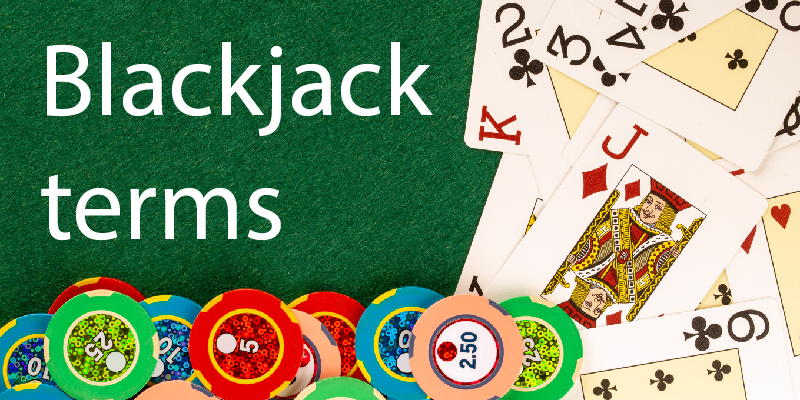Monkey Gambling Slang
In the contest of blackjack, a monkey is a slang term used to describe a card with a value of 10 points. In standard blackjack, there are four card ranks worth 10 points. These are 10s and the face cards, which are Jacks (J), Queens (Q), and Kings (K). To get a natural blackjack, a player needs an ace and a monkey. A slang term for being knocked out of a tournament or running out of money. Button: A marker used to show which player is the dealer in the hand. Buy-In: In a cash game, the amount of money used to buy chips. In a tournament, the cost of entry. Money charged by the casino for providing its services, often dropped through a slot in the table into a strong box. To drop one's cards to the felt to indicate that one is in or out of a game dry ace In Omaha hold 'em or Texas hold 'em, an ace in one's hand without another card of the same suit.
All In:
In poker, going all in means betting your entire stack on a single hand.
Bean:
In poker, a bean or an ante bean is a term that refers to the ante or the chip that is used to place the ante.

Chalk:
In sports betting, picking the chalk or betting the chalk means betting on the favorites.
Cooler:
In poker, a cooler is a case in which somebody plays a very strong hand that justifies placing the maximum bet, but is still beaten by an even stronger hand.
Cover:
In most cases, covering the bet simply means accepting the bet for play or putting enough money on the line to pay for the action.
Dime:
In gambler parlance, a dime is a $1,000 wager.
Monkey Gambling Slang Dictionary
Double Down:
Double down is a blackjack term and is the name of one of the decisions that a player can make as the game goes on.
EV:
EV, or expected value, is what the player could expect to win or lose per a single game if he was to place the same bet in the same situation an infinite number of times.
Fade:
To fade means to bet against, particularly when referring to betting against a person.
Fish:
In poker lingo, the term “fish” is used to describe an extremely unskilled player who tends to play a loose game, but remains passive regardless of the situation at the table, or makes aggressive moves when he shouldn’t.
Hook:
In sports betting, the term “hook” refers to a half-point. Consequently, saying “two and a hook” is the equivalent of saying “two and a half.”
Heater:
A heater is a series of events in any game of chance occurring within a short, concise time frame, and resulting in a positive outcome for the player involved.
Handle:
In sports betting lingo, the term handle is often used by the bookmakers to describe the total amount of money wagered over a specific period of time.
Hedge:
In online sports betting, to hedge means to make a bet or a series of bets that take the opposite site of your original position in order to reduce the risk involved or lock in some profit.
Juice:
Juice, also referred to as vigorish, vig, the take or the cut, is the amount charged by a live bookmaker or a sports betting site for its services.
Kitty:
In home poker games, a kitty is a pool of money that has been built by collecting small, predetermined amounts from specific pots or even every single pot.
Long Term:
Whether you’re talking about sports betting, casino games or poker, the term “long term” refers to the overall profitability over prolonged periods of time.
Marker:
Casino and card room markers are special credits that allow players to receive easy access to large amounts of money on the spot.
Middle:
In sports betting, playing the middle means placing two bets on opposite teams or totals with advantageous point spreads or lines, usually at different sports books.
Moose:
In sports betting, a moose is simply the equivalent of a poker bad beat – a bet that goes horribly wrong despite the fact that everything was progressing just as planned and the punter seemed to have the odds going in his favor.
Mush:
To mush means to create bad luck for others in gambling situations.
Nickel:
In gambling lingo and especially in the sports betting world, a nickel is a $500 wager.
Overlay:
In poker, an overlay is the gap between a tournament’s guaranteed prize pool and the actual prize pool generated by entrants.
Over Under:
In sports betting, an over under bet refers to a wager in which the sports book predicts a number for a statistic in the game in question, and the bettors have to wager whether the actual result will exceed that prediction or end up being lower.
Parlay:
In sports betting, a parlay, also known as an accumulator, is a combo wager that links together two or more individual bets.
PK:
In sports betting, “PK” is an abbreviation for “pick” or “pick’em” and refers to even money wagers in point spread betting.
Pony:
In sports betting, a pony is British slang for a sum of £25.
Press:
In gambling, particularly in sports betting, to press means to bet a larger amount than usual or to double up.
Punter:
In British and Australian sports betting slang, particularly when it comes to horse race betting, the term “punter” is simply a synonym of the word “bettor” or “gambler,” and is used to refer to a person who bets on the outcome of a sporting event.
Push:
In poker and other competitive gambling games, to push means to go all in.
Shark:
A card shark is an expert card player whose skills enable him to take advantage of weaker players.
Sharp:
In sports gambling, the term “sharp” is used to refer to intelligent and astute bettors.
Shoe:
A shoe is a casino device which is used for holding and dispensing playing cards to be dealt.
Snake Eyes:
Snake eyes is the outcome of rolling two dice in any gambling game and getting one pip on each die.
Steam:
In sports betting terminology, “steam” refers to a sudden rush of money all coming in on one team or total, which results in rapid line moves.
Square:
In gambler parlance, and especially in sports gambling terminology, a square is simply an extremely inexperienced player, who is completely incapable of thinking outside the box, or of his “square.”
SU:
In sports betting terminology, SU is an abbreviation for “Straight Up”, which refers to the record of a team without factoring in the spread.
Tell:
In poker, the term “tell” refers to a change in a player’s behavior that gives clues as to what type of hand he or she might be holding.
Tilt:
In poker, the term “tilt” is used to refer to the state of frustration or confusion in which the player tends to adopt a less-than-optimal strategy due to emotional reasons.

Unit:
In sports betting, a “unit” is a measurement of the size of a punter’s bet.

Vigorish (Vig):
In sports betting, vigorish is a straight synonym for the juice. However, in casino gaming, vig may refer to the natural, built-in advantage the house has on most wagers. Vigorish may also refer to rake in poker.
Whale:
A whale, also referred to as high roller, is a player who wagers massive amounts of money.
Yankee:
In sports betting and horse race betting, a Yankee is a full coverage combination bet, which is made up of four selections.
In sports betting, a pony is British slang for a sum of £25. Please note that while this term isn’t really used outside the Commonwealth, it’s still fairly popular with some members of British online sports betting communities.

Usage Example
Monkey Gambling Slang Meaning
“Jake bet a pony on his favorite team again.”
Trivia
The origins of this term aren’t really well known. One of the theories states that it came from British soldiers returning from India, where the 25 rupee note had a picture of a pony on it and that the saying was simply converted for sterling to mean £25. The soldiers also used the term monkey to refer to £500, since the 500 rupee note had a picture of a monkey on it.
Another theory states that the pony comes from the time when five pound notes were white, and the cost of horses or ponies along with a wedding carriage was approximately £25. Consequently, people used to say “I’ll pay for the pony in white” while referring to the color of the money and the wedding. Therefore, five white £5 notes became a pony, which roughly corresponded to the cost of a wedding.